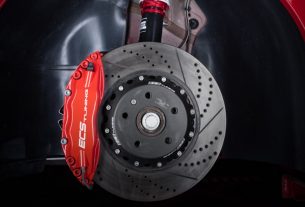Firstly, thank you for speaking with us, could you give us a brief overview DocuWare and the company’s main aims?
From manufacturing and retail to healthcare and government, DocuWare provides businesses with industry-leading digital document management and automated workflow software. We help over 15,000 companies worldwide to capture, route and securely archive their most important business information.
Our aim is simple: to simplify work by empowering organisations of any size to digitise and automate their own business processes.
How important is it in your opinion for digitisation to be considered more in the manufacturing industry?
I would say that the futuristic view and the willingness to invest in developing and applying new digital automation technologies have ensured many companies remain successful today.
Large global manufacturers were among the earliest adopters of digital process management solutions. But today, due to increasing competitive pressure, supply chain woes and a rapidly changing regulatory landscape, manufacturers need to up their technology game. Through technology, they can get to market faster, compete in global markets, and manage costs.
To achieve this, manufacturers of all types, from biotechnology and pharmaceuticals to metal fabrication and machine parts, need to automate production and administrative processes so they can be sustainable, work smarter, manage costs, and deliver better, faster results for their customers – and this can all be done through digitalisation.
Talk us through how production can be streamlined to deliver faster results
In the early years of my career, I worked for one of the largest manufacturing automation companies in Europe where I saw first-hand the importance of digitising processes and also developed them. It is about digitising all manufacturing aspects, these being:
- a) the digitisation of the automation design,
- b) the automation and flexibilisation on the production side but also…
- c) the digitisation and automation on the back office / administrative side including material purchasing, finance, quality control processes and human resource management.
To stay one step ahead of the competition, time to market for a manufacturer of any size must be significantly reduced, all while continuing to follow strict reporting, compliance, and security standards. This requires a more transparent document production software and work processes.
With technology such as document management and workflow automation, all documents pertaining to production are digitised and stored in a central archive. So, whether that is working with design drawings, material orders, production documents, sales orders or invoices, employees can access all documents 24/7 in the office or at home. These documents can trigger automated workflows. This streamlining of documents with workflows enables any manufacturing business to expedite production, reduce risk, and contain costs.
What are the main benefits of digitisation?
The greatest benefits and ROI are evident in many ways – but I’ll give two examples:
There is increased productivity and improved collaboration. Through digitising paper records, cross-departmental exchange of information can happen easily. Once documents are reviewed or approved, workflows can be kicked off automatically and no bottlenecks are holding up the process. Document search and retrieval are straightforward, allowing employees to work faster and more efficiently. When this happens, the work environment is better, and employees are happier.
Secure, compliant record-keeping is another key advantage. We have customers who manufacture precise components for no-failure industries such as the medical, airspace, and photonics industries. Government regulations mandate that these manufacturers retain documentation about the parts they supply for the lifetime of the product or instrument. A paperless, digitised document storage system means there is an enormous reduction in time, cost, and stress.
Do you think more companies are embracing and implementing these solutions?
We’ve seen a real shift in small and mid-sized manufacturers embracing these solutions. Without digitisation, employees waste time capturing, storing, and routing documents using slow manual processes. Those cost valuable time and money.
But now technology solutions, such as our cloud-based document management, are flexible, adaptable, and most importantly they are scalable and therefore affordable. Manufacturers of all sizes can now reap the benefits of digitalisation through automation, levelling out the playing field in ways we couldn’t have imagined back in 2019.
Do you feel that the pandemic increased/ changed views on digital solutions?
The pandemic forced businesses around the globe to transform faster than they could have ever anticipated. It required all types of businesses from small family-run shops to huge multinational conglomerates to invest in new tools to enable their employees to work remotely.
At DocuWare we saw first-hand a surge in demand for cloud-based document management solutions and automation technologies, along with a specific interest in automating invoice processing tasks and better cybersecurity to enable employees to import, share, approve, collaborate, and store business documents.
Even as we almost reach three years since the first lockdown across many countries, the demand for these technologies continues to grow worldwide demonstrating that hybrid working, process automation, document management and digital transformation are here to stay.
How do you think digitisation in the manufacturing industry will progress in 2023?
It will progress because it is getting easier and easier, with very little downtime for the business during the implementation time frame. ECM solution providers like us, assume responsibility for implementation, system upgrades and security patches which makes it easier to scale and saves businesses from investing in more in-house IT resources. We expect the demand for technologies that digitise and automate processes to continue in 2023 and we look forward to helping more businesses realise their full potential.
Michael is President of DocuWare Group, where he leads research, product development, engineering, HR and finance. A technology leader and innovator, he is responsible for several additions to the DocuWare product portfolio such as DocuWare Cloud and Intelligent Indexing. Michael joined DocuWare in 2008 and his vision led the technology in the direction of cloud-based solutions. He became President in 2019. He holds a Ph.D in Computer Science, specializing in distributed and intelligent systems from the University of Dresden (TU).




